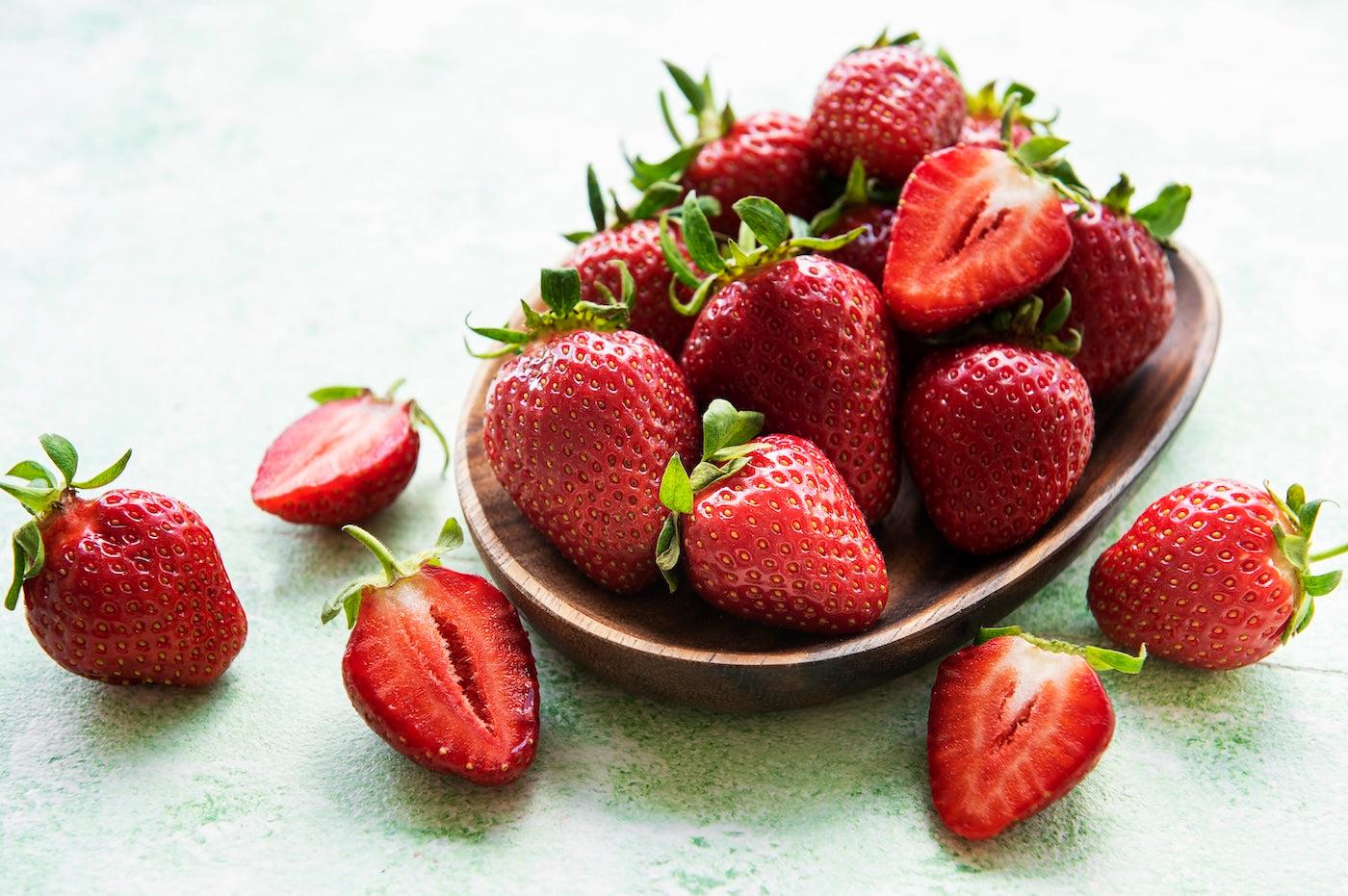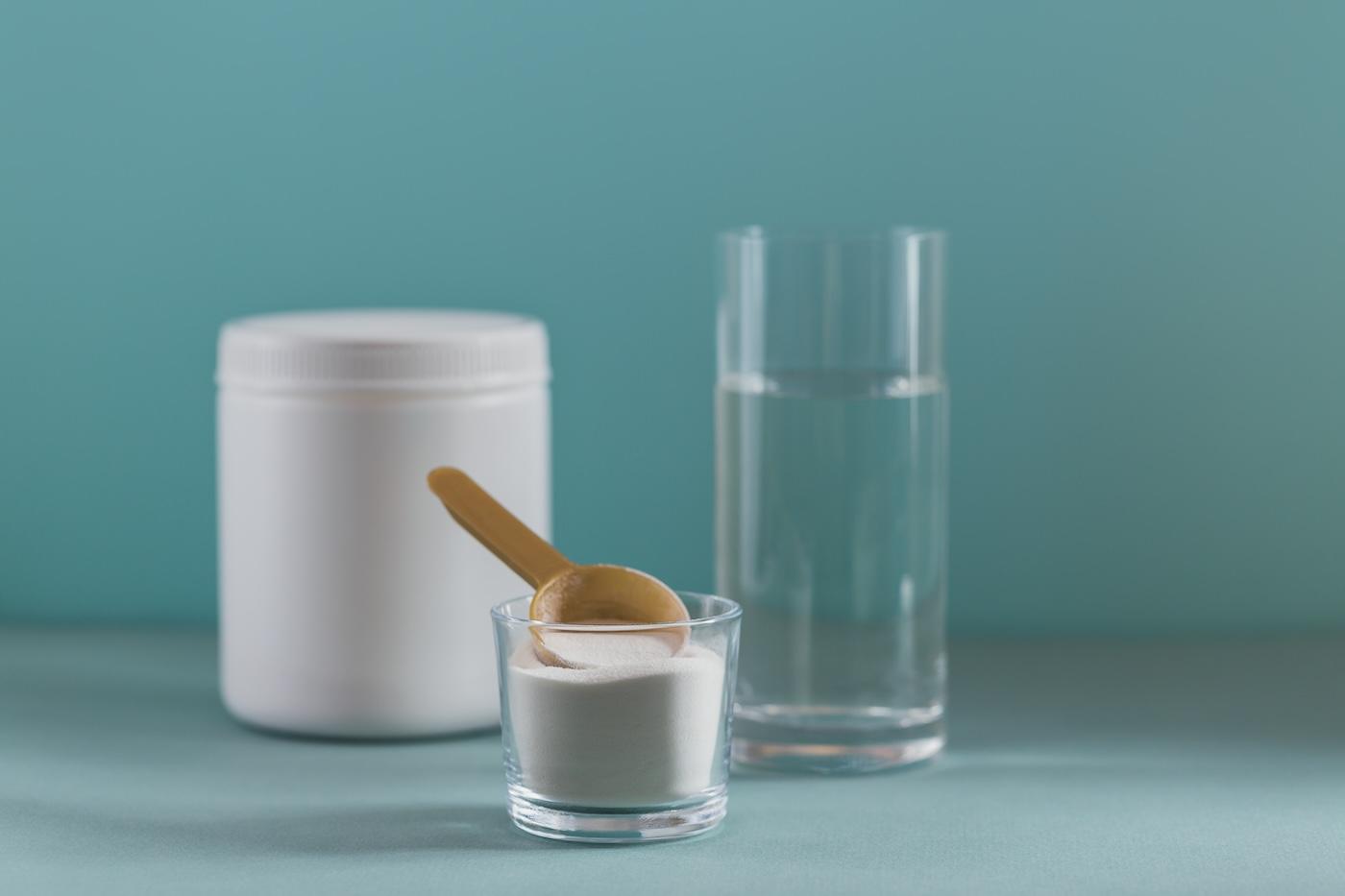PREGNANCY
Are Strawberries Safe During Pregnancy?
Get the sweet truth about this fruit.

Written by
Happiest Baby Staff

Yes! Strawberries are an excellent addition to your pregnancy diet, but as with all fresh fruits and veggies, it’s important that they’re handled properly (meaning you wash them under clean, running water before eating or cutting). General produce safety guidance for pregnant people specifically recommends rinsing fruits and vegetables under running water (no soap) to reduce germs that can cause foodborne illness.
Benefits of Eating Strawberries During Pregnancy
Strawberries are nutrient-packed little gems. They contain:
- Vitamin C: A cup of strawberries is a rich source of vitamin C. Vitamin C helps your body absorb non‑heme iron from plant foods (important because iron-deficiency is common in pregnancy!)
- Folate: Strawberries contribute some pregnancy-essential folate, but pregnant folks become still need a daily folic acid supplement (400 mcg) to help prevent neural tube defects.
- Fiber and water: Strawberries provide fiber and are ~90% water, which can help keep you regular and hydrated! (Read up on how to cope with pregnancy constipation and the importance of drinking enough water while expecting!)
- Antioxidants: Strawberries contain antioxidant compounds, which help your cells do their jobs.
Risks or Considerations
Pesticides and Contaminants
Though you can’t really go wrong loading up your plate with berries—or fruits and veggies in general—there are a few things to be aware of. For example, the Environmental Working Group has named strawberries to its “Dirty Dozen” list of most pesticide-contaminated foods.
However, federal monitoring shows that the vast majority of conventional produce samples test below EPA tolerance levels for pesticide residues. The most important step is to wash strawberries under running water before eating or preparing them (this helps with both residue plus wards off foodborne illness). Skip the soap or commercial produce washes!
Blood Sugar Sensitivity
If you have gestational diabetes, fruit can fit into a balanced plan—focus on portions and total carbohydrates rather than avoiding specific fruits. Discuss individualized targets with your OB/GYN or diabetes care team. (Learn more about eating healthily with gestational diabetes!)
Sensitivities and Allergies
Of course, if strawberries give you tummy trouble or reflux or you have a known allergy, it should be a no-brainer that you should leave them off the menu throughout pregnancy, too!
How to Safely Eat Strawberries While Pregnant
Here’s how to enjoy strawberries sans stress during pregnancy:
- Rinse under running water just before eating or using.
- Feel free to eat fresh, frozen, or cooked strawberries—all are brimming with helpful nutrients. Smoothies are fine, too, but can sometimes sneak in added sugars. Just make sure you’re keeping them in check (especially if you’ve been diagnosed with gestational diabetes).
- Pair vitamin‑C‑rich strawberries with iron‑containing foods (e.g., iron‑fortified oatmeal, beans, or lean meats). Vitamin C boosts iron absorption, so you get more bang for your buck from those iron-rich eats when they’re paired with vitamin C!
- If your provider has advised you to watch your portion sizes, keep in mind that a typical portion is about 1 cup of fruit.
- When to Be Cautious of Strawberries
Avoid strawberries if you have a known strawberry allergy. If strawberries worsen reflux for you, adjust portions or frequency. (More on pregnancy heartburn!) Otherwise, there are no strawberry‑specific pregnancy complications documented when standard food safety steps are followed!
Bottom line
Strawberries are a pregnancy‑friendly fruit! Wash well under running water, enjoy appropriate portions as part of a balanced diet, and follow your clinician’s guidance for any specific medical needs.
More on Healthy Eating During Pregnancy
- Foods to Boost Your Baby's Brain
- How to Eat for a Healthier Mood
- What to Eat Before a Labor Induction
- Pregnancy Nutrition Myths to Ignore
***
REFERENCES
- U.S. Department of Agriculture FoodData Central: Food Details – Blueberries (2346409)
- National Institutes of Health Office of Dietary Supplements: Iron Fact Sheet for Health Professionals
- National Institutes of Health Office of Dietary Supplements: Vitamin C Fact Sheet for Health Professionals
- Centers for Disease Control and Prevention: Folic Acid—Clinical Overview for Health Care Providers
- Trends in Intake of Dietary Supplements Among US Adults From 1999 to 2018, JAMA, July 2023
- Environmental Working Group: Dirty Dozen List
- U.S. Department of Agriculture: Pesticide Data Program Annual Summary, 2023
- U.S. Food and Drug Administration: Fruits, Veggies and Juices—Food Safety for Moms-to-Be
- U.S. Food and Drug Administration: Advice About Eating Fish—For Those Who Might Become or Are Pregnant or Breastfeeding and Children Ages 1–11 Years
- American College of Obstetricians and Gynecologists: Gestational Diabetes
- American College of Obstetricians and Gynecologists: Nutrition During Pregnancy
- Centers for Disease Control and Prevention: Food Safety for Pregnant Women
Disclaimer: The information on our site is NOT medical advice for any specific person or condition. It is only meant as general information. If you have any medical questions and concerns about your child or yourself, please contact your health provider.
SHARE THIS ARTICLE
MOST LOVED
Sleepytime Sidekicks












